CNN Opinion asked commentators to weigh in on President Donald Trump’s choice to fill the Supreme Court seat left vacant by the retirement of Anthony Kennedy – Judge Brett Kavanaugh. The opinions expressed in these commentaries are those of the authors.
Barbara Perry: Kavanaugh is perfect choice for a GOP president to make
For nearly all of the 116 successful appointments to the US Supreme Court, two criteria have been paramount: ideological compatibility with the nominating president and objective merit.
Despite Donald Trump’s insistence that he didn’t consider the nominee’s political views, the Federalist Society and the Heritage Foundation, which provided the president with suggested appointees, did. Brett Kavanaugh’s conservative ideology is compatible with these two interest groups and Trump’s most recent ideological posture.
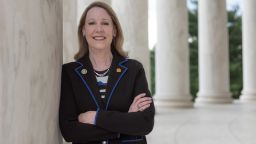
Yet Kavanaugh’s brand of conservatism is more akin to his mentor President George W. Bush’s “compassionate” variety than the extremism of many “movement conservatives” in the Goldwater/Reagan mold.
As the nominee to replace his judicial role model Justice Anthony Kennedy, for whom he clerked, Kavanaugh is the perfect candidate to assume the Court’s swing seat under a Republican president. He may be less moderate than Kennedy, but he is not as incendiary as a Robert Bork, whose nomination failed in 1987 at the hands of a Democratic Senate, led by Ted Kennedy. Supreme Court nomination politics are even more polarized now, but the Senate is in GOP hands, even if only narrowly so, making a Bork debacle much less likely.
In addition, Kavanaugh, with his two Yale degrees, and stellar professional pedigree, is unquestionably meritorious and qualified to take his place on the nation’s highest tribunal, joining the long list of luminaries who have graced its bench. Trump has been caught in many a lie, but he has made good on his campaign promise to name qualified conservatives to the bench.
Barbara A. Perry is the Gerald L. Baliles Professor and director of presidential studies at the University of Virginia’s Miller Center. She was a Supreme Court fellow in 1994-95. Follow her on Twitter @BarbaraPerryUVA.
Ilyse Hogue: Women’s fundamental freedom is at stake
President Trump has been very clear that his pick for any Supreme Court nominee would be a vote to end Roe v. Wade, criminalize abortion, and thus punish women. Clearly, he must believe Brett Kavanaugh lives up to his litmus test.

We can’t forget what America was like before Roe and we know the devastating reality today for so many women in so many states where the right to make the most fundamental decisions about their bodies, families, and lives has been all but eradicated. If confirmed, Judge Kavanaugh would likely use his position as a tool to doom all women to that fate.
Ending Roe doesn’t end abortion – it simply means we have a country where abortion is illegal and women and doctors become criminals. Yet, according to a 2016 survey, nearly seventy percent of Americans believe abortion should remain legal in this country.
With the power to confirm Judge Kavanaugh, Senators now hold the keys to women’s fundamental freedom. They must ensure that the Court is a check against the ideological agenda of this administration and that it’s part of an independent branch of government. This is essential to the human and civil rights our democracy depends on.
Ilyse Hogue is President of NARAL Pro-Choice America.
Ilya Shapiro: Kavanaugh would make a great justice
Brett Kavanaugh is a great pick, even if an inside-the-Beltway double-Ivy swamp creature is a somewhat surprising choice for Donald Trump. Having spent a dozen years on the US Court of Appeals for the DC Circuit – the second-highest court in the land – Kavanaugh has been devoted to textualism and originalism. His opinions are scholarly and influential in the legal profession, often cited by the Supreme Court itself.
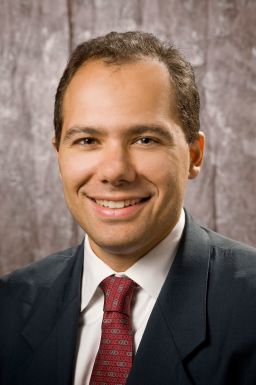
He’s much like Justice Anthony Kennedy, for whom he clerked, in his dedication to the Constitution’s structural protections for liberty. He believes that, as he put it at the White House ceremony announcing his nomination, “an independent judiciary is the crown jewel of our constitutional republic.” His steadfast defense of civil rights, including the freedom of speech, and religion, and armed self-defense, are so important in these embattled times.
Perhaps most notably, Kavanaugh’s willingness to push back on the excesses of the regulatory state make him a man for the moment. I hope that he joins Justices Gorsuch and Thomas in a project to make judges less deferential to administrative agencies.
More prosaically, Kavanaugh can differentiate between the hats he has worn as a judge, teacher, scholar, and political operator. He sees the judicial role as reading and applying the law, not being an agent for legislative or social change. While, if confirmed, there will be cases where the future Justice Kavanaugh and The Cato Institute do not see eye-to-eye – he’s not a libertarian – I hope that in those politically sensitive times where Chief Justice Roberts may be inclined to tweak a law in order to save it, Kavanaugh will be more like Justice Scalia and let the political chips fall where they may.
There’s no reason to delay Judge Kavanaugh a confirmation in the normal course and nothing in his record to justify the demagoguery he’s already facing. I look forward to seeing him on the bench in the highest court in the land come October.
Ilya Shapiro is a senior fellow in constitutional studies at the Cato Institute and editor-in-chief for the Cato Supreme Court Review.
Erika Bachiochi: Amy Coney Barrett would have been a better choice
I have to admit it: I was hoping President Trump would choose Judge Amy Coney Barrett. Brilliant, courageous, and quick on her feet, the professionally and personally esteemed mother of seven puts to rest – in her very person – the central pro-choice feminist assumption that bearing and raising children impedes women’s serious engagement in professional and public life.

She would have brought true diversity to the Court on the most rancorous constitutional issue of our day, underscoring how an intellectually astute woman need not acquiesce in the unquestioning abortion rights dogma that has held the cause for women’s rights hostage for far too long now. And she would have been able to make the case the best way possible: debunking the sham legal reasoning that has upheld the putative right for decades by day and blazing an alternative path with her family by night.
Comparatively, President Trump played it safe: Judge Brett Kavanaugh is a legal all-star, an accomplished jurist, and a darling of the conservative judicial establishment; he can be trusted by friend and foe alike to interpret the Constitution as it is written. A solid constitutionalist, Kavanaugh will join those on the Court who are deeply skeptical of its current (internationally extreme) abortion jurisprudence. But with Kavanaugh rather than Coney Barrett, the optics do not bode nearly as well.
Should the President have another chance, and should that chance come in the form of the retirement of an aged Justice Ruth Bader Ginsburg, Trump should pull the trigger and nominate Coney Barrett. Our country desperately needs the opportunity to debate not only abortion, but to see how the autonomy feminism Ginsburg has long represented should pass away with its most cherished leader.
A dignitarian feminism, by contrast, would recognize both that women and men are of equal dignity and are duly encumbered by their shared responsibilities to the vulnerable and dependent – in their own families and in the community at large. Coney Barrett would not only serve the Constitution better than most jurists of our time; she would reveal, by the very integrity of her life, a more dignified way forward.
Erika Bachiochi is a fellow at the Ethics & Public Policy Center and a Visiting Scholar at Harvard Law School.
Erwin Chemerinsky: Can Democrats do a Bork repeat?
Brett Kavanaugh is not the first conservative judge on the US Court of Appeals for the District of Columbia Circuit to be nominated to replace a “swing justice” on the Supreme Court.

In 1987, Justice Lewis Powell, then widely perceived as occupying that role on the court, announced his retirement. President Ronald Reagan nominated D.C. Circuit Judge Robert Bork to replace Powell. Democrats defeated Bork’s nomination, and Anthony Kennedy was then nominated. Five years later, Kennedy cast the fifth vote to reaffirm Roe v. Wade and to limit school prayer, something Bork publicly declared he would not have done.
Can the Democrats repeat this with Kavanaugh? The challenge is much harder this time. In 1987, Democrats controlled the Senate, and the key to blocking Bork was convincing Southern Democrats, such as Sen. Sam Nunn of Georgia, to vote no. Now, the Senate is controlled by Republicans. With John McCain likely too ill to vote, the Democrats need to convince one Republican senator and all of the Democratic senators, including several who are up for re-election in red states that Trump handily carried in 2016, to vote no.
Of course, if the Democrats succeed in blocking Kavanaugh, Trump will nominate another conservative. The Democrats’ only hope is that defeating Kavanaugh will keep the seat from being filled before the November elections. If the Democrats take the Senate, they surely will refuse to confirm any Trump Supreme Court nominee, following the Republicans’ precedent of denying a vote and a hearing when President Barack Obama nominated Merrick Garland. If the Republicans retain the Senate, there is no realistic way the Democrats can keep this seat from being filled by someone more conservative than Kennedy.
The stakes for this seat on the Supreme Court are enormous. The future of abortion rights, affirmative action, separation of church and state, limits on the death penalty, the exclusionary rule and so much else where Kennedy voted with the liberals easily could change with one more staunch conservative on the high court. That also was true in 1987, and the Democrats were far better off with Kennedy than Bork. The question is: Can they avoid another very conservative judge again?
Erwin Chemerinsky is the dean and Jesse H. Choper Distinguished Professor of Law at the University of California, Berkeley, School of Law.
Paul Callan: Kavanaugh is no Carswell
Nothing causes more distress to Democrats than the thought that their hated President Trump has this evening nominated his second candidate for the position of Associate Justice of the Supreme Court. But the increasingly left-leaning Democratic Party should know that things could have been worse than the president’s choice of conservative appellate judge Brett Kavanaugh.
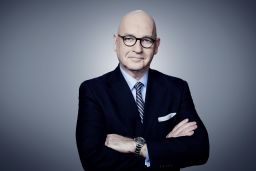
President Nixon once nominated G. Harrold Carswell, a judge who Senator Roman Hruska of Nebraska once defended by saying: “Even if he is mediocre, there are a lot of mediocre judges and people and lawyers. They are entitled to a little representation, aren’t they, and a little chance? We can’t have all Brandeises, Cardozos and Frankfurters, and stuff like that there.” Carswell was rejected by a vote of 51-45.
Fortunately, unlike Carswell, Judge Kavanaugh is eminently qualified for service on the Supreme Court. He is a 53-year-old graduate of Yale Law School with a distinguished legal resume including service as Senior Associate Counsel to President George W. Bush, and as a law clerk to Justice Anthony Kennedy, the widely respected Justice he may soon replace.
He has 12 years of seasoning as a Judge on the DC Circuit Court of Appeals, widely viewed by the legal profession as the Triple-A farm team for the Supreme Court. He is a judicial conservative who professes the belief that judges should attempt to interpret the law and Constitution as written rather than imposing his personal ideology on the text. America’s democracy accords to the president the constitutional prerogative to nominate candidates to the Supreme Court.
So, it’s time for the Democrats to get over it. Kavanaugh’s lengthy record can be evaluated by the Senate and the American public. And fortunately for Democrats and Republicans, Kavanaugh is no Carswell. Things could be far worse. After all, Kim Kardashian appears to have been a hit at the White House recently – and non lawyers can serve on the Supreme Court.
Paul Callan is a CNN legal analyst, a former New York homicide prosecutor and “of counsel” at the New York law firm of Edelman & Edelman PC. Follow him on Twitter @paulcallan.
Tim Naftali: If Gorsuch was an arranged marriage, Kavanaugh is Trump’s love match
Monday night Donald Trump made his own choice for the Supreme Court. Trump’s first nomination to the Court, Neil Gorsuch, was an arranged marriage by comparison.
Judge Brett Kavanaugh was not on the original Federalist Society’s list that candidate Trump endorsed in 2016 to win the hearts and minds of the Christian right. He also wasn’t one of the two potential nominees reportedly given the thumbs up by Senator Mitch McConnell for having the best starting prospects for confirmation. As a result, the East Room became the stage for some unsubtle political theater.
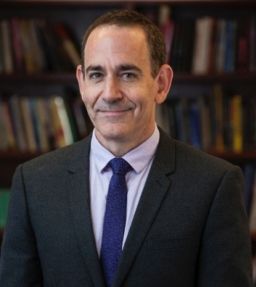
Much, though not all, of Monday night’s choreography seemed designed to assuage concerns of Christian conservatives.
In his acceptance speech, Judge Kavanaugh stressed that he went to a Jesuit school and was from a “vibrant Catholic community.” It does not take much imagination to see this as signaling about his views on abortion.
Meanwhile, President Trump, who rarely considers any predecessor worth citing, not only mentioned Ronald Reagan but also invited Ed Meese, Reagan’s attorney general, to the event and gave him a shout out. Meese matters not just because of the link to Reagan but because of his longtime leadership of the staunchly conservative Heritage Foundation.
On his own, Judge Kavanaugh sent some other noteworthy signals. He stressed his love of family, and through a series of anecdotes emphasized a belief in equal opportunity for women. In that case, he was likely speaking to an audience of four: Senators Susan Collins, Heidi Heitkamp, Claire McCaskill and Lisa Murkowski.
The act of repetition in a short speech suggests an awareness that the current politics of the Senate, where the margin for victory is razor-thin and moderate women hold crucial votes, demand at least the appearance of that kind of sensitivity.
The only surprise was that the likely future Justice also mentioned his and his wife’s service to George W. Bush, a name that has almost no traction anymore in Washington and is an epithet in Trump circles.
Perhaps this is what Kavanaugh meant by saying that he intended to be an “independent” Justice. Trump no doubt looked the other way this time because Kavanaugh – who worked for Kenneth Starr in his investigation of Bill Clinton – once caused pain for the Clintons, people the President likes to torment as much or more than the Bushes.
The former director of the Richard Nixon library, Timothy Naftali is a CNN presidential historian who teaches history and public policy at NYU.
Caroline Polisi: Trump wants to choose his own referees
Only in a Trump presidency could we find ourselves in this most unbelievable of situations: the president has chosen a Supreme Court nominee, tipping a pivotal balance of power squarely in his favor, to a Court that could very likely decide the President’s own fate. So while the country is in the midst of a potential constitutional crisis of Trump’s own making, he’s choosing the referees.
Brett Kavanaugh, who started his distinguished legal career as a clerk for Justice Kennedy, and has noted his belief in the “essential neutrality of the law,” is an extremely well-qualified nominee to the Supreme Court. He also happens to be a staunch conservative who published a law review article noting that the indictment of a sitting president would “cripple” the federal government and would “ill serve the public interest.”
Here are some of the lofty questions potentially facing Judge Kavanaugh, should he be confirmed:

Can a sitting president be indicted? If special counsel Robert Mueller were to find evidence of criminal conduct on the part of the president, and did decide to move forward with an indictment, (which, admittedly, I think is unlikely), the issue would certainly make its way to the Supreme Court. Kavanaugh is on record noting his belief that a sitting president should not be indicted while in office. Either that is sheer coincidence, or the President noted this position when choosing his nominee.
Can the president pardon himself? The issue has never been legally tested, but if Trump were to attempt it, this issue would have to be resolved by SCOTUS. Kavanaugh, a Constitutional textualist, would likely vote that a self-pardon is constitutional, merely because the text of the Constitution itself does not explicitly prohibit it.
Can a sitting president be compelled to testify before a grand jury? Mueller will have to decide very soon whether or not he will proceed without Trump’s testimony, or whether he will subpoena the president to testify before the Grand Jury. Kavanaugh may get the pivotal vote on this issue.
The fact that a judge was nominated by a particular president is not a basis for recusal in all cases connected to that president. And Supreme Court justices do not have to abide by the recusal rules set for other federal judges – they make case-by-case determinations. If Kavanaugh is confirmed, however, President Trump will have cemented a conservative legacy by defining the Supreme Court for more than a generation.
At the very least, Kavanaugh should recuse himself from deciding any of the three questions above in order to avoid the mere appearance of impropriety.
Caroline Polisi is a federal and white collar criminal defense attorney in New York, a frequent CNN contributor and is of counsel at Pierce Bainbridge. Follow her on Twitter: @CarolinePolisi.
Errol Louis: Why Trump chose a Beltway soldier
President Trump took a break from pandering to his base Monday night, throwing a bone to establishment Republicans he’ll need to confirm Brett Kavanaugh to the Supreme Court.
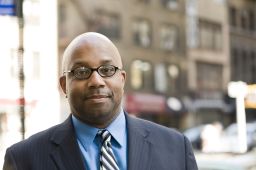
For all his complaints about the so-called Deep State and despite promises to “drain the swamp,” in the end Trump chose in Kavanaugh, a Beltway veteran, experienced in several high-profile political battles over the last two decades. It’s moderate Republican Senators and red-state Democrats that Trump needs to get Kavanaugh confirmed with at least 51 Senate votes. In order to get them, he has nominated a DC soldier with a taste for political combat. Those skills will come in handy when Democrats try to stall or derail Kavanaugh’s nomination.
As a young man, Kavanaugh in the 1990s worked on Special Prosecutor Kenneth Starr’s investigation into Bill Clinton, during which he laid the groundwork on how a president could be impeached for obstructing justice.
Kavanaugh also served as an attorney in the case of Elian Gonzalez, a 6-year-old Cuban boy who was deported to Cuba over the objections of conservatives who made the child a symbol of opposition to the communist Castro regime. And in the 2000 election, he was on the legal staff for the Bush campaign during the contentious recount that gave the White House to George W. Bush.
Despite the well-known enmity between Trump and the Bush family, the president’s choice of Kavanaugh signals the hard reality that establishment Republicans – Bush Republicans – will control whether Trump’s pick gets confirmed to the Supreme Court.
Errol Louis is the host of “Inside City Hall,” a nightly political show on NY1, a New York all-news channel.
Dawn Laguens: There’s no question on Roe
As a mother of three daughters and one of the one-in-four women in this country, according to the Guttmacher Institute, who have had an abortion, I know what is on the line if Judge Brett Kavanaugh is confirmed to serve on the Supreme Court. Because I don’t have any question about how he will rule on abortion.
President Donald Trump already told us. He promised that he would only nominate judges who would vote to overturn Roe v. Wade. Those of us who support abortion rights are taking him at his word.
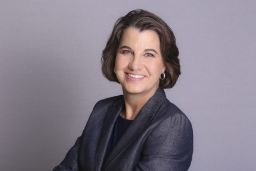
Brett Kavanaugh has already ruled to limit access to safe, legal abortion. Just last year, he attempted to use his judicial power to prevent a young undocumented woman in US custody from accessing a safe, legal abortion. Fortunately, the full court on which Kavanaugh sits intervened and allowed the young woman to access the health care she needed.
He also ruled against access to birth control, when he authored the dissenting opinion in the DC Circuit’s 2015 ruling on the Affordable Care Act’s birth control benefit – writing that he believed employers have the right to deny their employees health insurance coverage for birth control.
Now, it’s on Kavanaugh to prove not only that he will “respect precedent” (a vague way that previous nominees have tried to dodge direct questions before turning around and ruling in ways that ignored precedent) but to prove he will respect Americans’ personal liberty and adhere to what Planned Parenthood and other groups have defined as a personal liberty standard.
This means the Senate must only confirm a justice who states that the Constitution protects the right of all people to make personal decisions about their bodies – including the right to use contraception and to have an abortion.
With Judge Kavanaugh’s nomination, the balance of the court is at stake – and with it the constitutional right to have an abortion in this country. Abortion is normal, safe health care that has been constitutionally protected for 45 years. Women will not stand by while their most fundamental rights are stripped away.
Dawn Laguens is executive vice president of the Planned Parenthood Federation of America.
Kristen Clarke: Kavanaugh must recognize voting rights are under attack
There is no right more central to American democracy than the right to vote. Yet, this administration has undertaken relentless action to make access to the ballot box more difficult. Questions about voter suppression, racial and partisan gerrymandering and more will be at the forefront of the Supreme Court’s deliberations for the foreseeable future.

If, as the President has promised, his new nominee will be a “home run” in the manner of Justice Gorsuch, Americans have a lot to worry about with respect to this nomination. Justice Gorsuch has already distinguished himself in the arena of voting rights by approving a process that made it easier for Ohio to purge legitimate voters from the rolls, and in joining Justice Thomas in a flawed concurrence holding that Section 2 of the Voting Rights Act – the sole safeguard of minority voters against discrimination after the evisceration of Section 5 of the Voting Rights Act by the Supreme Court in Shelby v. Holder – does not apply to redistricting cases.
Over the next few terms, the court will be faced with significant voting rights challenges that arise out of the 2020 Census, including challenges to racial gerrymandering which continues to rear its ugly head in redistricting efforts across the country. A number of cases concerning partisan gerrymandering that were sent back to lower courts this past term will return in the near future.
It is critical that any new justice recognize that voting discrimination remains part of our ongoing political reality in this country and bring a commitment to fairly enforcing federal voting rights laws. Simply put, voter suppression efforts targeting African Americans, Latinos and other people of color, remain rampant and widespread and any judge confirmed for a seat on the court must be willing to acknowledge this.
While Justice Kennedy was far from perfect on all voting issues, at times he clearly recognized the need to uproot the discrimination that infects society today. It is time for the Senate to stand up and carry out its constitutional obligation of reviewing Judge Brett Kavanaugh’s record to determine his commitment to fairly enforcing and applying the constitution and federal voting rights laws in our country. Democracy itself is at stake with this nomination.
Kristen Clarke is president and executive director of the national Lawyers’ Committee for Civil Rights Under Law, which leads the Election Protection Coalition, the nation’s largest nonpartisan voter protection program. Follow her at @KristenClarkeJD.
Shan Wu: A member of the elite serving the elite
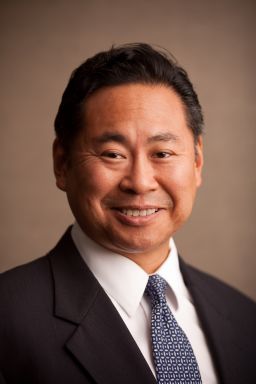
Judge Kavanaugh is the Forrest Gump of President Trump’s potential Supreme Court nominees (in fact, Sen. Dick Durbin called him that during his confirmation hearings for the Circuit Court judgeship). Present at major Republican watersheds from the Starr investigation (where he pressed for sexually explicit questions to be asked of President Clinton) to Bush v. Gore and into the Bush II White House years, Kavanaugh served as the classic inside-the-Beltway foot soldier for the Republican establishment. Born in DC, the child of two lawyers, an attendee at a prestigious prep school, Yale law school and a Federalist Society member, his story is one of the elite serving the elite.
As a judge, he authored a law review article arguing that sitting Presidents should not be distracted by civil law suits or criminal investigations. His conclusion in that article that impeachment serves as a sufficient check on potentially criminal Presidential behavior syncs up perfectly with Trump lawyer Rudy Giuliani’s identical argument. Moreover, his opinion finding that an immigrant female teen in custody lacked the right to an abortion offered Trump a perfect blend of anti-immigrant policy flavored with a hint of pro-life.
Today’s nomination ensures Kavanaugh a continuing Gumpian role in future landmark conservative Republican issues. Expect him to embrace the part.
Shan Wu is a former federal prosecutor who also served as counsel to Attorney General Janet Reno. Follow him on Twitter @ShanlonWu.
Kristin Rowe-Finkbeiner: Moms of America to US Senate – just say no to Kavanaugh
Being able to choose if we want children, how many to have, and when to have them is core to women’s personal freedoms and economic stability. Trump’s nomination of Brett Kavanaugh for the Supreme Court of the United States is a direct attack on women, children, and families.

A pattern is emerging in Trump’s deceptively chaotic policies. In the past couple of weeks alone, Trump has attacked women with his dangerous Supreme Court pick, harmed immigrant families with his damaging immigration policies, tried to cut SNAP (food stamps) even though 1 in 4 children in our nation live in food insecure households, and even opposed a popular resolution in support of breastfeeding at the United Nations to the extent of threatening retaliation against another country that wasn’t on the same page. The list goes on, as do the damages to our families and economy.
Trump is wrong for our nation. Kavanaugh is wrong for our nation. It’s on us to use the power of our voices and votes as the 2018 midterm elections approach. We can, and must, do better as a nation.
Kristin Rowe-Finkbeiner is executive director and co-founder of MomsRising.org, a nonprofit national organization that supports policies to improve family economic security. She is the author of “Keep Marching: How Every Woman Can Take Action and Change Our World.”
Former Kavanaugh clerk: He’s the best teacher I’ve ever had
Anyone who knows Judge Brett Kavanaugh knows he reveres the Constitution. For 12 years on the second most important court in the country, Judge Kavanaugh has applied the Constitution as it is written. He knows that judging means going where text and precedent lead you, in a fair-minded, evenhanded manner. That’s why he always told us – when I was his student in the classroom and when I was his clerk in chambers – that every case is a separation of powers case. Every case is about the proper limits of the judicial role.

That passion for our constitutional structure is among the reasons he’s the smartest lawyer I’ve ever met and the best teacher I’ve ever had. He’s also a devoted father, a brilliant writer, and one heck of a middle-school girls basketball coach! He loves his country and the law, and our nation is lucky his service to both will continue on the Supreme Court.
Justin Walker is an assistant professor at the University of Louisville Brandeis School of law and a former clerk to Judge Brett Kavanaugh and Justice Anthony Kennedy.
Danielle Campoamor: Kavanaugh is Trump keeping his word about overturning Roe v. Wade
In May of 2016, during an appearance on Fox News’s “The O’Reilly Factor,” then presidential nominee Donald Trump promised to appoint pro-life judges. He told Bill O’Reilly he would protect the “sanctity of life,” saying, “I will protect it and the biggest way you can protect it is through the Supreme Court and putting people in the court.”
During a presidential debate in October 2016, Trump said he would only select pro-life judges for the United States Supreme Court, saying if he appointed two or three judges, overturning Roe v. Wade would happen “automatically” because “I’m putting pro-life justices on the court.”

Analysis of President Trump’s decision to nominate federal appeals court Judge Brett Kavanaugh as the next Supreme Court Justice can, and should, end there.
But it won’t, because too many of us continue to fail to take this current president at his word. For better or worse, though, we don’t have to look very far into Judge Kavanaugh’s judicial past to see that his nomination is Trump keeping his word, appeasing his so-called “pro-life” base and working to overturn Roe v. Wade.
While some conservatives argue that Judge Kavanaugh’s dissent in the 2017 case Garza v. Hargan, a case that held a detained immigrant teen’s right to access abortion care in the balance, wasn’t “strict enough,” his argument is a dark forewarning of what could be if Roe v Wade ends up on the chopping block. Judge Kavanaugh insisted the government could “temporarily delay” access to abortion, and that the Trump administration “has permissible interests in favoring fetal life, protecting the best interests of a minor, and refraining from facilitating abortion.”
In 2015, Kavanaugh ruled in favor of Priests for Life, an anti-abortion organization, which challenged in court an Obamacare provision that required health insurance plans to cover the cost of contraception without a co-pay, making it more difficult for poor women to access birth control. He has also been approved by the Federalist Society and the Heritage Foundation, conservative groups working to reshape the Supreme Court in favor of overturning Roe v. Wade.
And when asked if the George W. Bush administration nominated any pro-choice judges during a 2006 confirmation hearing, Judge Kavanaugh replied, “I don’t know, and we don’t ask, what someone’s position on issues like that is.” Which is why it’s no surprise that Cardozo Law School Professor Kate Shaw believes Kavanaugh might refuse to say in Senate hearings if he favors overturning Roe v. Wade.
And while many are quick to try and argue that refusing to comment on previous court rulings is the well-established precedent, during day two of her Senate Committee hearing, Justice Ruth Bader Ginsberg weighed in on Roe v. Wade, saying, “It is essential to a woman’s equality with man that she be the decision maker, that her choice be controlling. If you impose restraints, you are disadvantaging her because of her sex. The state controlling a woman would mean denying her full autonomy and full equality.”
The analysis will continue, to be sure, as experts, political talking heads, pundits and reporters dissect the latest Supreme Court nominee. But one thing is certain: President Donald Trump promised to appoint anti-choice judges to the highest court in the United States. He has made good on his promise.
Danielle Campoamor is an editor at Romper and a columnist for Bustle
